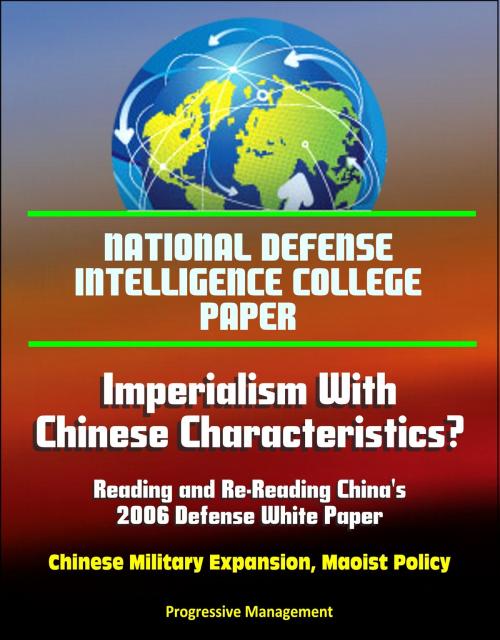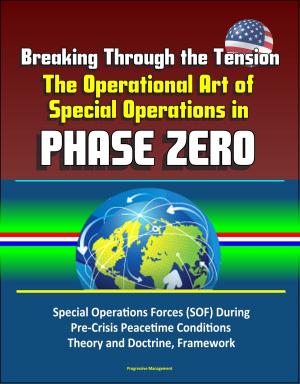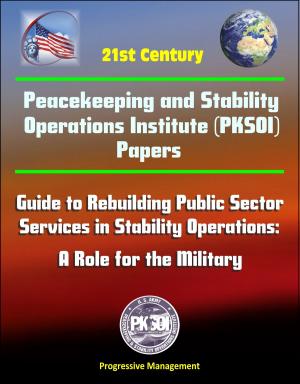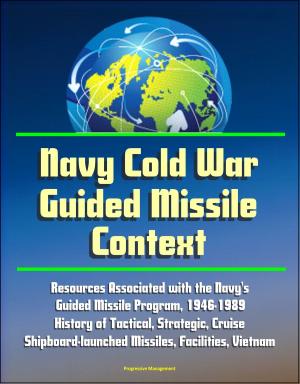National Defense Intelligence College Paper: Imperialism With Chinese Characteristics? Reading and Re-Reading China's 2006 Defense White Paper - Chinese Military Expansion, Maoist Policy
Nonfiction, Travel, Asia, China, History, Military, United States| Author: | Progressive Management | ISBN: | 9781310043314 |
| Publisher: | Progressive Management | Publication: | December 13, 2013 |
| Imprint: | Smashwords Edition | Language: | English |
| Author: | Progressive Management |
| ISBN: | 9781310043314 |
| Publisher: | Progressive Management |
| Publication: | December 13, 2013 |
| Imprint: | Smashwords Edition |
| Language: | English |
This unique and informative paper was produced by the National Intelligence University / National Defense Intelligence College. The [Chinese] White Papers provide foreign readers a glimpse into China's general mood concerning its current situation as well as a general portrait of China's policies that are designed to protect and further China's interests. It does appear that, with development becoming the core strategic, and therefore defensive, concern, China's security concern overseas is becoming inseparable from its concern with domestic security. Does this not also raise the prospect that certain military activities overseas might be initiated by China that China might characterize as purely "defensive" because an overseas event was having a unsettling effect on China's domestic stability and security? Might not China consider and portray such initiatives as Just and Legal? Topics and subjects include the expansion of the Chinese military and Maoist policy.
The paper argues that China's 2006 Defense White Paper not only explains the importance of China's continuing military buildup but also lays the theoretical foundation of a new defense policy that seems to amount to nothing less than imperialism. It further argues that this change in policy has been brought about primarily by real changes in China's "state interests." These changes have been brought about by China's having entered a new era/stage of development that entails a new relationship to the outside world. This explanation will resolve the seeming paradox that as China's comprehensive national strength continues to increase and as the military threat to China continues to decrease China feels such a powerful need not only to continue but to accelerate the world's largest and most comprehensive military modernization. This paradox is occurring as the international system accelerates toward real multipolarity, as the recent financial crisis in the United States has ordained an eventual decrease in its military budget and lessening of its global influence, and as China seems to skate through the recent international financial crisis.
Imperialism with Chinese Characteristics? Reading and Re-reading China's 2006 Defense * Editor's Note * Preface * THE FOUR CHANGES * An Analysis of Defensive National Defense Policy of China for Safeguarding Peace and Development * On Development of China's Defensive National Defense Policy Under New Situation * 2013 U.S. Intelligence Community Worldwide Threat Assessment - Cyber Threat to Critical Infrastructure, Iran, Nuclear Weapons, Terrorism, al-Qaida, Jihad, WMD, North Korea, Syria, Afghanistan
This unique and informative paper was produced by the National Intelligence University / National Defense Intelligence College. The [Chinese] White Papers provide foreign readers a glimpse into China's general mood concerning its current situation as well as a general portrait of China's policies that are designed to protect and further China's interests. It does appear that, with development becoming the core strategic, and therefore defensive, concern, China's security concern overseas is becoming inseparable from its concern with domestic security. Does this not also raise the prospect that certain military activities overseas might be initiated by China that China might characterize as purely "defensive" because an overseas event was having a unsettling effect on China's domestic stability and security? Might not China consider and portray such initiatives as Just and Legal? Topics and subjects include the expansion of the Chinese military and Maoist policy.
The paper argues that China's 2006 Defense White Paper not only explains the importance of China's continuing military buildup but also lays the theoretical foundation of a new defense policy that seems to amount to nothing less than imperialism. It further argues that this change in policy has been brought about primarily by real changes in China's "state interests." These changes have been brought about by China's having entered a new era/stage of development that entails a new relationship to the outside world. This explanation will resolve the seeming paradox that as China's comprehensive national strength continues to increase and as the military threat to China continues to decrease China feels such a powerful need not only to continue but to accelerate the world's largest and most comprehensive military modernization. This paradox is occurring as the international system accelerates toward real multipolarity, as the recent financial crisis in the United States has ordained an eventual decrease in its military budget and lessening of its global influence, and as China seems to skate through the recent international financial crisis.
Imperialism with Chinese Characteristics? Reading and Re-reading China's 2006 Defense * Editor's Note * Preface * THE FOUR CHANGES * An Analysis of Defensive National Defense Policy of China for Safeguarding Peace and Development * On Development of China's Defensive National Defense Policy Under New Situation * 2013 U.S. Intelligence Community Worldwide Threat Assessment - Cyber Threat to Critical Infrastructure, Iran, Nuclear Weapons, Terrorism, al-Qaida, Jihad, WMD, North Korea, Syria, Afghanistan















